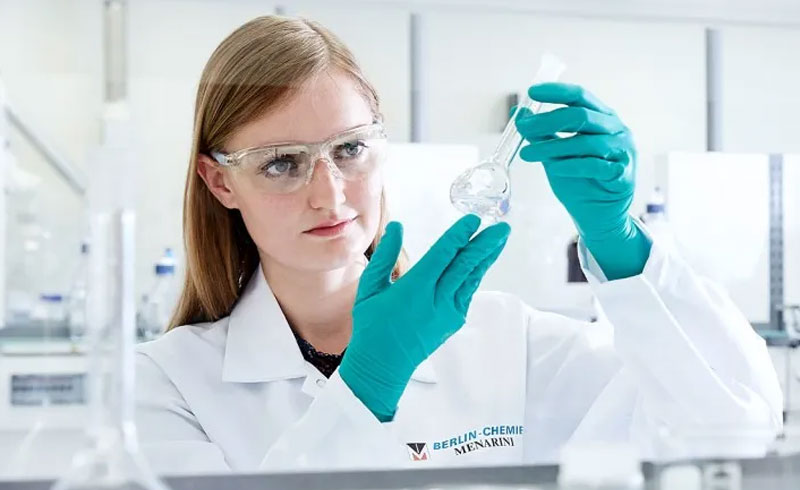Welcome to the News & More section. Here you will find general information in the form of press releases, news and the latest graphical material.
- About Us
- Therapeutic Areas
- Responsibility
- Partnering
- Professionals
- News & More
- Careers
- Share on
- X
- SCROLL TO TOP
Berlin-Chemie has been developing, manufacturing and distributing pharmaceutical products for over 130 years and has been a wholly owned subsidiary of the Menarini Group, the leading Italian pharmaceutical company, since 1992.
For patients, we provide the latest patient information leaflets and training materials as well as the technical information for Berlin-Chemie products available in Germany via our Medical Hub.
Responsibility is a top priority at Berlin-Chemie. We not only make an important contribution to healthcare, but also put our values into practice through various social initiatives.
Discover More about Global Responsibility

From school kits to free meals and medicines, to caring for the environment around the world. In Menarini, being responsible means translating our values into concrete actions that are good for others and good for the planet
Berlin-Chemie – a strong partner. Our many years of experience and the success of joint projects make us the partner of choice.
Discover More about Global Partnering

Menarini has in-depth know-how in many important therapeutic areas, thanks to many years of excellent market introduction, marketing and sales capabilities as well as expertise in regulatory aspects and market access. Collaboration is the key to great success, and at Menarini, partnership is part of the DNA.
Our holistic and professional health management offers doctors individual counselling, training or workshops, events and lectures on many topics, depending on their needs.
Our Medical Hub acts as a central point of contact for doctors and healthcare professionals. Here you will find all the information about our medications, additional service and training opportunities.

We employ professionals with a wide variety of career backgrounds and are employers who care about their staff. Together, we stand for innovation and reliability.

Our Job Portal
Find out about our current vacancies at Berlin-Chemie directly on our career portal.
Within the Menarini Group, Berlin-Chemie is the regional headquarters for the CEE and CIS region and is responsible for more than 30 countries and their local subsidiaries.
As a reliable partner in the healthcare sector, we want to use our products and expertise to help solve the complex challenges in the healthcare sector in these regions. To this end, Berlin-Chemie has established strong partnerships at all levels in many countries. We support doctors and patients with high-quality medical products and technologies to improve the quality of life.
Our regional headquarters
BERLIN-CHEMIE AG
Glienicker Weg 125
12489 Berlin, Deutschland
E-mail: info@berlin-chemie.de
Phone: +49 (0)30 6707-0
Fax: +49 (0)30 6707-2120
I WANT INFORMATION ABOUT
I WANT TO REPORT A PROBLEM
Thyroid diseases
The thyroid gland produces hormones that play a major role in metabolism and other areas. These hormones also help to regulate growth and other body functions.
The thyroid may be affected by a variety of disorders, which can generally be divided into two groups - hormonal malfunction and changes in the size and structure of organs. Examples of the latter include an enlarged thyroid or the appearance of lumps or tumours. These changes may affect the production of hormones by the thyroid, but may also leave it unaffected. Hormonal malfunctions, however, are directly related to changes in the level of thyroid hormones in the blood. This may lead to hypothyroidism or hyperthyroidism.
Hypothyroidism is the most common disorder of the thyroid gland. It may develop during a person’s lifetime or be a congenital condition.1 Hypothyroidism may result in the body having too little of the important thyroid hormone, which can cause a variety of symptoms such as listlessness, depressive mood, difficulty concentrating, increased sensitivity to cold, muscle cramp or even hair loss.1
Hormonal malfunction is diagnosed by testing for thyroid hormone levels in the blood. Hypothyroidism (thyroid hormone deficiency) can be treated by substitution therapy with hormone tablets.1 Changes to the shape and size of the thyroid gland can be detected by ultrasound scans.

Sources:
1 Schübel J., et al., S2k-Leitlinie Erhöhter TSH-Wert in der Hausarztpraxis, 2023











